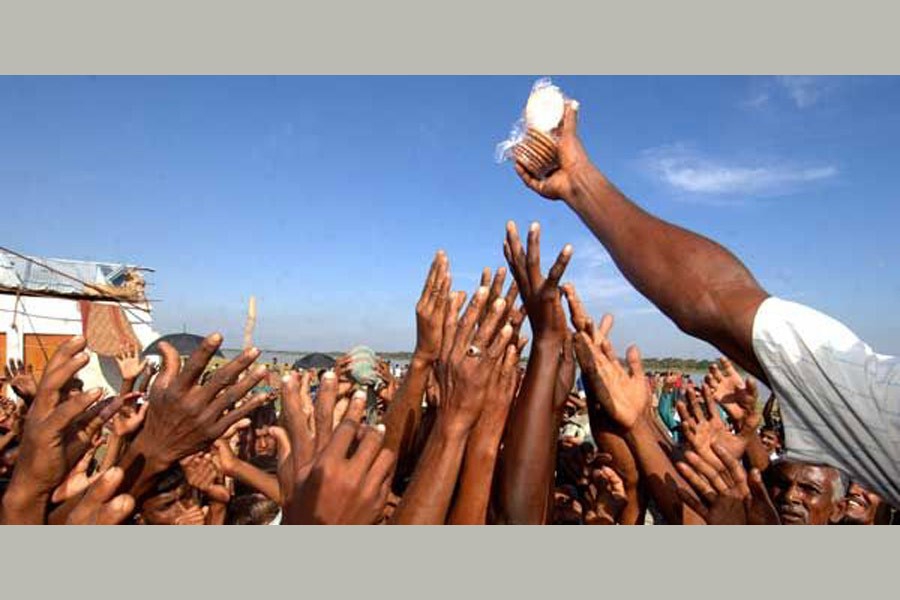It makes a sad commentary on the state of affairs that a natural disaster striking the country every time lays bare the country's lack of preparedness. Massive flood recently engulfed many areas of Bangladesh and nearly one third of the country was inundated. According to the World Food Programme (WFP), flood affected people lost their homesteads, cattle and crops and are already running short of food. Apart from the crops washed away by the devastating flood, other crops overrun by flood waters on millions of acres were also damaged.
As a matter of great relief, flood situation has improved, but the damage caused to crops has fuelled the fear that a food crisis may be imminent. The WFP report says, Bangladesh is running the risk of a post-flood food crisis as free supply of food for the affected people on a long-term basis is uncertain. Sources at the Ministry of Disaster Management say, flood that ravaged the country in June and July this year was the deadliest in recent years. Earlier in March this year, the boro crops of haor regions were ravaged by flash floods and an estimated 2.0 million tons were completely destroyed. Floods hit the country thrice in quick succession and food stock nosedived due to unwarranted loss of crops and lack of preparedness.
With uncertainty of food looming large, the government first decided to import 1.2 million tons of food grains, but changed its decision soon after in favour of 2.0 million tons bearing in mind the possibility of losing Aman crop in view of renewed flooding. Earlier in March flash floods caused havoc to boro crops in six haor regions and despite having sufficient budget allocation for flood control and prevention of crop diseases, the government could not protect the crops allegedly due to corruption at field level.
Media reports unearthed massive corruption in construction of flood protection dams in the haor regions. It was found that in some areas dams were not constructed at all but bills were drawn against the job and areas where no dam was constructed were easily submerged by rain water and thus the situation soon went out of control. It is alleged that at some places dams were not given the height as per the design. Again at some other points dams broke down because of faulty construction. Most importantly, the situation further aggravated as the authorities failed to foresee the possibility of flash floods.
Media forewarned the government that its food stock was inadequate to handle emergency situation, but the government did not respond responsibly. Rice is now being purchased from the world market at comparatively higher price. The wholesalers took advantage of the situation and raised prices of all varieties by at least Tk10 per kg. Currently the lowest price of rice stands at Tk 50 a kg.
At the same time, the government reduced import duty on rice to only 2.0 per cent from 28 per cent to facilitate imports. That had no impact on the market as unscrupulous traders made sure that common people did not enjoy the advantage of duty reduction saying that price of rice in India also increased as different states of the country were hit by flood and reduction of price at home would encourage smuggling across the border. So reduction of import duty was going to benefit the importers only and would have no effect on customers, that is, the common people. In the ultimate analysis, the market price of rice is not likely to come down until the next harvest and scarcity will continue in more or less the same fashion.


